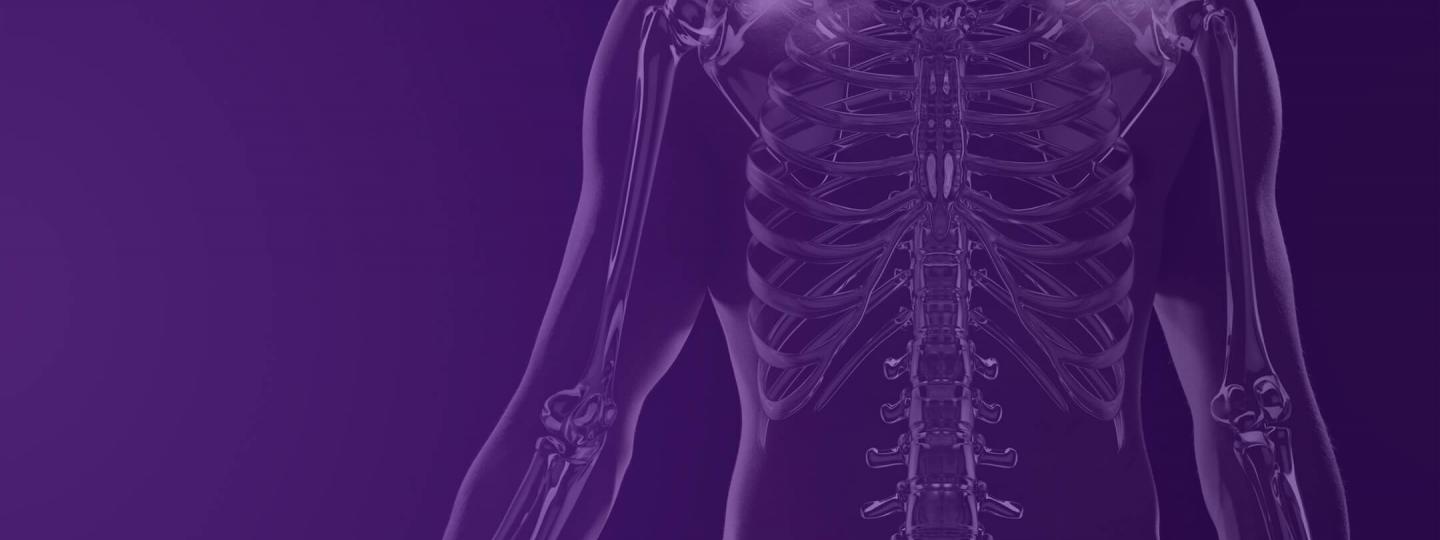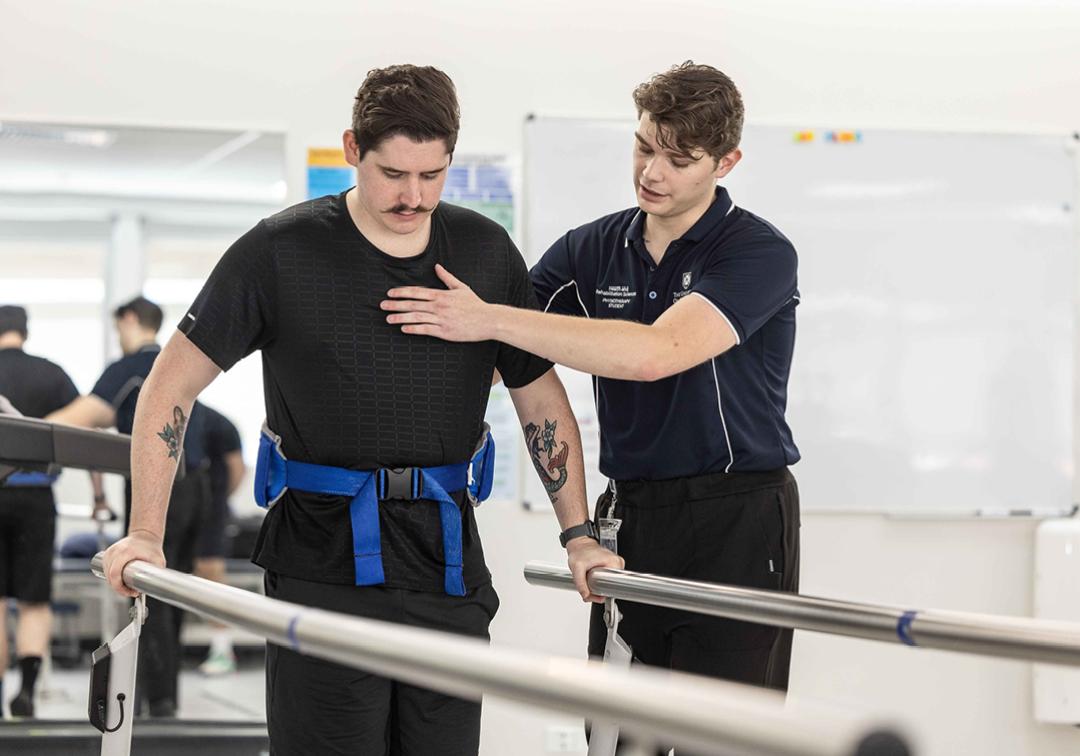
Master of Medicine
Overview
This online program will provide you with the skills required to diagnose and manage skin cancer through a flexible structure that can fit around your existing schedule.
Through this 2 year part-time program, you'll gain the knowledge and skills required to diagnose and manage skin malignancy. You'll also consolidate your skills in the fields of clinical and dermatoscopic diagnosis and managing skin malignancies.
You can choose either clinical, research or public health pathways. As a graduate, you'll possess a high level of knowledge and diagnostic skills that will empower you to manage a large proportion of skin cancer cases. You can also use this knowledge in skin cancer research or skin cancer related policy and health promotion.
You will:
- understand the embryology, microanatomy, physiology, oncology and epidemiology of skin
- be able to undertake a consultation (history and examination) for a skin check
- demonstrate an ability to assess skin lesions through dermatoscopy and dermal imaging – and be competent in differential diagnosis
- confidently advise and manage most patients with skin cancer, using appropriate medical and therapeutic modalities in partnership with the patient
- possess a sound understanding of how to minimise indemnity risk in your practice
- know when to refer a patient for further opinion or more advanced treatment
- undertake research training, critically analyse current research in the field and apply this in professional practice.
Program highlights
- Gain in-demand expertise in the diagnosis and management of skin cancer.
- Benefit from a program that's fully delivered online, including readings, lectures, group discussions and case studies, with assessments and examinations also administered online.
- Join the leading provider of medical education and research in Queensland at UQ Medicine.
Fields of study
Tailor your studies to suit your goals. This program offers these options:
- Skin Cancer
How you'll learn
Your learning experiences are designed to best suit the learning outcomes of the courses you choose.
- Lectures
- Online study
What you'll study
At UQ, degrees are called 'programs' and subjects are called 'courses'. Here's a sample of the courses you could study in this program:
- Clinical and Dermatoscopic Diagnosis in Skin Cancer Practice
- Assessment & Diagnosis
- Foundation Therapeutics
- Advanced Therapeutics
Career possibilities
Postgraduate study can take you anywhere. Depending on which field you choose, here are some of the careers you could be on your way to:
- General practitioner
- Hospital specialist
Events
See all events
9 June
Master of Physiotherapy information webinar
Stories
See all stories
Study tips
UQ's new pathway to the Doctor of Medicine
2-minute read

UQ people
Turning her curiosity into a healthcare career
4-minute read

UQ people
Chiemeka’s PhD story: cost-effective treatment for brain disorders
4-minute read
Stories
See all stories
Study tips
UQ's new pathway to the Doctor of Medicine
2-minute read

UQ people
Turning her curiosity into a healthcare career
4-minute read

UQ people
Chiemeka’s PhD story: cost-effective treatment for brain disorders
4-minute read
Entry requirements
Entry requirements
To be eligible for entry, you'll need:
- a bachelor's degree (or equivalent) in medicine, plus 2 years full-time equivalent post qualification clinical practice, and
- you must have access to and have obtained any necessary permission for the use of appropriate and sufficient clinical cases in order to complete the program.
You must have a grade point average (GPA) of 4.0 on a 7-point scale in your previous qualification.
- a bachelor's degree (or equivalent) in medicine, plus 2 years full-time equivalent post qualification clinical practice, and
- you must have access to and have obtained any necessary permission for the use of appropriate and sufficient clinical cases in order to complete the program.
You must have a grade point average (GPA) of 4.0 on a 7-point scale in your previous qualification.
Related programs
Depending on your previous qualifications and current goals, you might want to consider
one of these related programs:
English language requirements
TOEFL IBT (including Paper Edition) - Overall 100, listening 25, reading 25, writing 27, speaking 23.
PTE Academic - Overall 72, sub bands minimum 72.
BE - A minimum overall grade of 5 plus a minimum grade of A in all macro skills.
CES - Overall 185, All sub bands minimum 185.
OET - A minimum score of 350 in each sub-skill
There are other ways to meet the English language requirements. For some programs, additional conditions apply.
Student visas
This program does not meet the eligibility requirements for an Australian Student visa (subclass 500).
To study this program in Australia you will need a temporary visa or residency status with study entitlement. Some programs can also be studied from outside Australia.
Additional application information
Additional application information
Fields of study
Fields of study
Tailor your studies to suit your goals. This program offers these options:
Fields of study
Tailor your studies to suit your goals. This program offers these options:
Fees and Scholarships
Indicative annual fee
Approximate yearly cost of tuition (8 units). Your fees will vary according to your selected courses and study load. Fees are reviewed each year and may increase.
$6,780
2026
Approximate yearly cost of tuition (8 units). Your fees will vary according to your study load. Fees are reviewed each year and may increase.
AUD $27,048
2026
Government assistance
Financial aid
As an international student, you might be eligible for financial aid – either from your home country, or from the Australian Government.
HECS-HELP
Domestic places in the Master of Medicine are Commonwealth supported, as long as you meet all Commonwealth supported place eligibility requirements.
This means the cost of your education is shared between you and the Australian Government. Instead of tuition fees, Commonwealth supported students pay what are called student contribution amounts.
If you have a Commonwealth supported place, you may also be eligible for HECS-HELP. This is an Australian Government loan scheme to assist eligible students with the cost of their student contribution amounts.
Centrelink support
The Australian Government offers a number of income-support payments to eligible Australian university students.
Scholarships
You may be eligible for more than 100 scholarships, including:
How to apply
Applying online
All international applications should be submitted to UQ. The program code for the Master of Medicine is 5398.
International students who want to study this program will not be eligible for a Student Visa (subclass 500).
To study this program in Australia, you will need an Australian visa or residency status with sufficient study entitlement. Some programs can also be studied from outside Australia.
Applying online
All domestic applications should be submitted to UQ.
The program code for the Master of Medicine is 5398.
Important dates
The closing date for this program is:
- To commence study in Semester 1 - January 16 of the year of commencement.
- To commence study in Semester 2 - June 16 of the year of commencement.
Visa processing times vary. Apply and accept your offer as early as you can.
To learn more about UQ dates, including semester start dates, view the Academic Calendar.
Important dates
The closing date for this program is:
- To commence study in Semester 1 - January 16 of the year of commencement.
- To commence study in Semester 2 - June 16 of the year of commencement.
To learn more about UQ dates, including semester start dates, view the Academic Calendar.
Aboriginal and Torres Strait Islander applicants
For support with applying – or if you have any questions about university life – get in touch with our Aboriginal and Torres Strait Islander Studies (ATSIS) Unit.
Explore other programs
Express yourself. And your interest.
They say choosing a degree is hard, which is why we've made it easy. Register your interest and we'll send you everything you need to know about applying to UQ.



